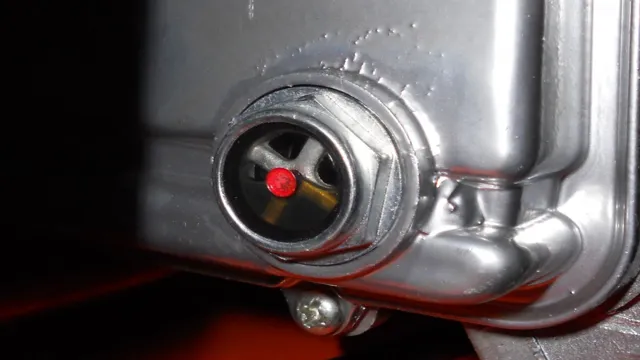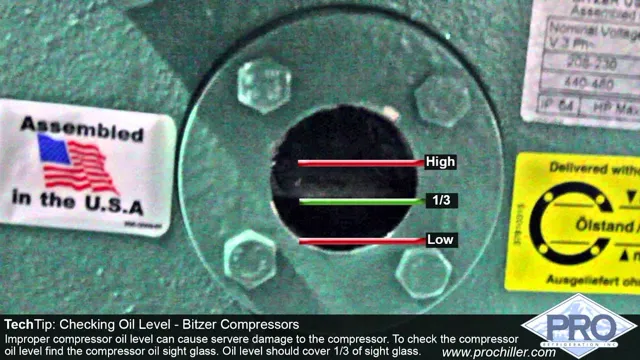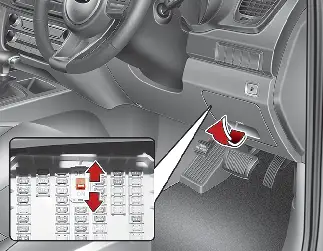Get Rid of AC Problems! Learn to Check and Top Up AC Compressor Oil Level
Have you noticed that your AC unit isn’t cooling down your home as efficiently as it used to? It could be due to a low oil level in your AC compressor. Checking your AC compressor oil level is crucial in maintaining the longevity and effectiveness of your cooling system. Much like the oil in your car engine, the compressor oil in your AC unit lubricates its moving parts, preventing damage and allowing for smooth operation.
But how do you check the oil level in your AC compressor? It’s not as complicated as you may think. In this blog, we’ll walk you through the steps to check the oil level and provide some tips for maintaining your AC system for optimal performance. Don’t let a low oil level lead to costly repairs or a sweltering home.
Keep reading to learn more.
What is AC Compressor Oil?
If you want to ensure your air conditioning unit is working properly, it’s important to check the AC compressor oil level regularly. So what is AC compressor oil? It’s a specially designed oil that helps to lubricate and protect the compressor from wear and tear, so your air conditioning system can operate smoothly and efficiently. If you notice that the AC isn’t cooling as well as it should be, or you hear strange noises coming from the unit, it could be a sign that the compressor oil level is low.
To check the oil level, you will need to locate the oil sight glass on the compressor. First, turn off the AC unit and allow it to cool down. Then, use a flashlight to look through the sight glass and check if there is sufficient oil in the system.
If you notice the oil level is low, it’s important to add the correct type of oil as specified in the manufacturer’s manual. Regularly checking and maintaining the AC compressor oil level will help to extend the life of your air conditioning system and keep your home cool and comfortable.
-Function
AC compressor oil is a lubricant that is specifically designed to be used in air conditioning systems. It plays a crucial role in the proper functioning of the AC system by lubricating the compressor’s moving parts, which can get damaged if there is not enough lubrication. AC compressor oil is typically made from synthetic, mineral, or semi-synthetic base oils, which provide excellent lubrication properties.
It also contains additives to enhance its anti-wear and corrosion-resistant properties and to prevent foaming and oxidation. When choosing AC compressor oil, it is crucial to consider the system’s specific requirements, as different types of systems need different oil types. Using the wrong oil can lead to compressor failure, which is costly to repair or replace.
Therefore, it is essential to consult a professional technician or the manufacturer’s recommendations when selecting AC compressor oil for your air conditioning system.

-Importance in AC system
AC compressor oil is an essential component in any air conditioning system. It is a type of synthetic oil specifically designed to lubricate the compressor, which is responsible for compressing refrigerant gas that cools the air. The compressor oil helps reduce friction between the moving parts in the compressor, preventing wear and tear, and prolonging its lifespan.
AC compressor oil also serves as a sealant, helping to keep the refrigerant gas in the compressor and preventing leaks. Without sufficient lubrication from the oil, the compressor can overheat and seize up, leading to a costly repair or replacement. Therefore, it is vital to regularly check the oil level and condition in an AC system and change it as recommended by the manufacturer.
By using high-quality AC compressor oil, you can ensure that your air conditioning system functions efficiently and effectively, providing comfortable indoor air temperature.
When to Check AC Compressor Oil Level?
Checking your AC compressor oil level regularly can help you avoid costly AC repairs or replacements. It’s recommended to check your AC compressor oil level at least once a year. If you notice your AC system isn’t cooling properly, strange noises coming from the AC unit, or leaking refrigerant, it’s necessary to check the compressor oil level immediately.
To check the AC compressor oil level, turn off the AC system and wait for a few minutes until the compressor cools down. Then, remove the compressor oil cap and check the oil level using a dipstick. If the oil level is too low, you can add more oil until it reaches the appropriate level.
It’s important to use the right type of oil for your AC compressor, so consult the owner’s manual or speak with an HVAC professional to determine the appropriate oil to use. By regularly checking your AC compressor oil level, you can ensure your AC system works properly all year long.
-Signs of low oil level
When it comes to your car’s AC compressor, it’s important to keep an eye on the oil level. Low oil levels can cause serious damage and lead to costly repairs. But when should you check the AC compressor oil level? Well, a good rule of thumb is to check it at least once a year or every time you take your car in for a maintenance check.
However, if you notice any signs of low oil level such as strange noises coming from your AC, poor cooling performance, or a burning smell, then it’s best to check the oil level immediately. Don’t wait until it’s too late and your AC compressor suffers irreversible damage. So, be proactive and keep an eye on your car’s AC compressor oil level to ensure its longevity and your driving comfort.
-Frequency of checking oil level
Checking the oil level in your car’s AC compressor is an important maintenance task that often goes overlooked. It’s recommended that you check your AC compressor oil level every six months or 5,000 miles, whichever comes first. Depending on your vehicle’s make and model, the frequency of checking the oil level may vary, so it’s best to consult your owner’s manual for specific instructions.
Checking the oil level in your AC compressor is crucial because it helps prevent damage from occurring due to low oil levels. Without enough oil, the compressor can seize up and fail, causing expensive repairs. So, take the time to regularly check your AC compressor oil level to help keep your car running smoothly and avoid costly repairs down the road.
How to Check AC Compressor Oil Level?
If you’re wondering how to check AC compressor oil level, don’t worry, it’s not as complicated as it sounds. First, locate the compressor and look for a dipstick or sight glass. Some compressors may not have a dipstick, in which case you can use a special tool to check the oil level.
With the engine off, remove the dipstick or sight glass cap and wipe off the oil level marker with a clean cloth. Reinsert the dipstick or sight glass and give it a few seconds to settle. Check the level on the marker and compare it to the recommended levels in your vehicle’s owner’s manual.
If it’s low, add more oil until it reaches the recommended level. Be sure to use the recommended oil type and weight as specified by your vehicle’s manufacturer. Checking your AC compressor oil level is an important part of regular maintenance to ensure proper functioning and prevent costly repairs down the line.
-Gather required tools
Checking the oil level of your AC compressor is an essential maintenance task that can prevent major problems from occurring later down the road. Before you begin, make sure to gather all necessary tools, such as a socket set, a wrench, and a dipstick. Once you have these, locate the oil sight glass on your compressor, which should be near the bottom of the unit.
Remove the cap and check the oil level using the dipstick. If the oil level is low, add the appropriate oil until it reaches the appropriate level indicated by the sight glass. Remember to use the correct type of oil as specified in your owner’s manual.
Checking your AC compressor oil level regularly can prevent damage to your unit and prolong its lifespan.
-Locate compressor oil port
Checking the oil level of your AC compressor is an essential task that should be performed regularly to ensure your system runs smoothly and reliably. To begin, first, you need to locate the compressor oil port. This port is usually found at the base of the compressor and is marked with a cap.
Once you’ve located it, remove the cap and insert a dipstick to check the oil level. The dipstick will have markings indicating the required oil level-ensure that the oil level is within the guidelines and not low. If the oil level is low, you may need to add more oil to the compressor.
Remember to use the recommended type of refrigerant oil for your AC system. Checking your compressor oil level is a quick and easy task that can help prevent costly repairs or replacements and extend the lifespan of your AC system.
-Check oil level
AC compressor oil level When it comes to maintaining your vehicle’s air conditioning system, checking the AC compressor oil level is a crucial step. The compressor is the heart of the AC unit and is responsible for compressing and circulating refrigerant throughout the system. Checking the oil level is an essential part of ensuring proper lubrication and preventing damage to the compressor.
To begin, locate the compressor and find its oil fill port. Remove the port cap and using a dipstick or sight glass, check the oil level. Ideally, the oil level should be between the minimum and maximum marks on the dipstick or sight glass.
If the level is low, add oil slowly while monitoring the level to avoid overfilling. It’s essential to use the manufacturer’s recommended oil type and quantity for optimal performance. Regularly checking and maintaining the AC compressor’s oil level can prolong the lifespan of your system and keep it running efficiently.
So don’t forget to add this essential task to your vehicle’s maintenance checklist to keep your AC running like a charm.
-Add oil if necessary
Checking the oil level in an AC compressor is essential to ensure proper functioning and longevity of the system. Firstly, locate the oil sight glass on the unit and check the oil level. The oil level should be within the range specified by the manufacturer.
If the oil level is too low, add the recommended oil to bring it up to the optimal level. On the other hand, if the oil level is too high, drain the excess oil from the system. It’s important to use the recommended oil type and grade for the specific compressor.
Always double-check the owner’s manual or contact a professional technician to ensure proper handling. Remember that adding too much or too little oil can cause serious damage to the compressor. Keeping a regular check on the oil level can prevent expensive repairs and keep the air conditioning system running smoothly.
So, don’t forget to add oil if necessary when checking the AC compressor oil level.
Conclusion
Like a savvy detective, checking your AC compressor oil level is all about observation, attention to detail, and a little bit of know-how. With the right tools and techniques, you’ll be able to determine whether your compressor is running smoothly or needs a top-up. So don’t let your AC unit keep you in the dark – take charge of your cooling system and keep things running smoothly! After all, a happy AC system makes for a happy household on even the hottest, stickiest days of summer.
“
FAQs
Why is it important to check the AC compressor oil level?
Checking the AC compressor oil level ensures that the compressor is properly lubricated, preventing damage or wear and tear to the compressor.
Can I check the AC compressor oil level myself or do I need to take it to a mechanic?
You can check the AC compressor oil level yourself with the help of an oil level gauge. However, if you are not comfortable doing this, it is best to take it to a mechanic.
How often should I check the AC compressor oil level?
It is recommended to check the AC compressor oil level every 12 months or 12,000 miles, whichever comes first.
What should I do if the AC compressor oil level is low?
If the AC compressor oil level is low, you should add the recommended amount of oil to the compressor. It is important to use the correct type of oil, as specified in the owner’s manual or by a mechanic.





